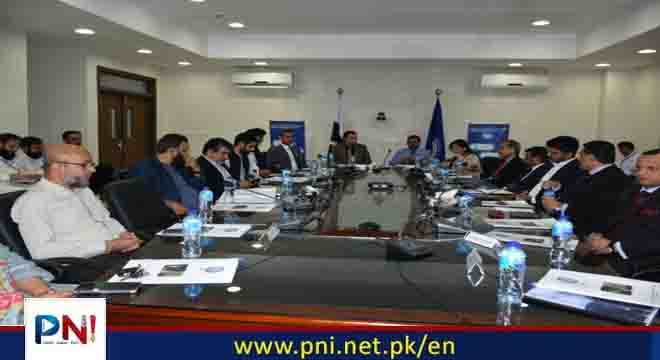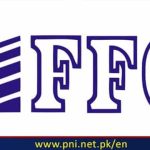ISLAMABAD, Aug 26 :The experts at a consultative session on solar panel manufacturing prospects in Pakistan on Monday demanded the government to introduce special incentives and financial support mechanisms to boost solar or photovoltaic panels that would help the country achieve a competitive position in the global market.
The second Collaborative Consultative Session titled “Shaping the Future of PV Panel Manufacturing in Pakistan”, hosted by the U.S.-Pakistan Center for Advanced Studies in Energy (USPCAS-E), NUST, in collaboration with Renewables First, a news release said.
The session brought together existing and prospective solar PV manufacturers alongside industry experts to discuss the enabling environment for solar PV supply chains, financing mechanisms, and potential technology transfer opportunities.
Principal & Dean of USPCAS-E, NUST, Dr. Adeel Waqas initiated the session by emphasizing proactive measures to overcome barriers and harness collaborative efforts to drive growth in PV panel manufacturing in Pakistan.
Director Policy – PPIB, Dr. Aqeel Jaffri provided an update on the progress of the existing Solar PV Manufacturing Policy draft and emphasized the need for further refinement to ensure its effective implementation.
He highlighted key areas for improvement, including taxation, the import of raw materials, and export strategies for the final product. Dr Jafri mentioned the importance of targeting the local market, particularly in sectors like glass production to strengthen domestic capabilities.
Research Fellow – SDPI, Dr. Khalid Waleed stressed that the policy should incorporate incentives, tax grants, and subsidies to provide Pakistan with a competitive edge on the international stage. He also highlighted the importance of developing long-term projects and policy plans to ensure sustained growth and stability in the industry.
Chief Operating Officer – REON Energy, Saqib Zaidi stressed that the policy framework needs to be aggressive and strongly favor investors to attract and sustain investment in the industry and he also pointed out that local manufacturing becomes competitive with a 30% subsidy or financing support mechanisms.
Deliberating on technology transfer options, Country Director – Longi Solar, Ali Majid shared that Chinese investors and manufacturers are showing growing interest in Pakistan, driven by the country’s high potential and the slowing growth in China, which is prompting investors to seek opportunities abroad.
Chief of Party – PFAN, Ahmed Ammar Yasser emphasized the need to focus on allied components of solar PV system, which may be easier to localize in the short term. He underscored the potential benefits of strengthening partnerships with Chinese companies mentioning the current global geopolitical shifts.
Asim Riaz, Secretary General – Pakistan Solar Association highlighted that with the current industrial status in Pakistan, panel manufactures may not meet the international product standards, unless any international industry facilitates through technology transfer.
Discussing the financing outlook for the manufacturing industry in Pakistan, Abid Kitchlew, EVP – National Bank of Pakistan, emphasized the crucial need for government support to ensure funding availability for manufacturing projects. He highlighted innovative financing strategies, such as offering tax rebates for lenders, and proposed the introduction of policy instruments that mandate the use of locally manufactured PV systems in public sector solarization programs.
He also advocated for greater input from the banking sector in policymaking to better align financial strategies with industry needs. During discussion on “Skilled Workforce Development for PV Panel Manufacturing under the PSDP”, Muhammad Kamil Qaddus, Sector Specialist Energy – Ministry of Planning, Development & Special Initiatives, mentioned that there is a plan for the coming year to solicit feedback and suggestions from academia and other stakeholders, which will then be submitted to the ministry for further consideration.
Dr. Tahir Izhar, Director R&D – MaxPower, highlighted the significant potential for solar PV manufacturing in Pakistan, emphasizing that this potential depends on the early adoption of a comprehensive Solar PV Manufacturing Policy. He pointed out that while there is strong demand for solar panels in Pakistan, the current manufacturing capacity is insufficient.
The discussion concluded with Dr. Nadia Shahzad of USPCAS-E presenting plans to support the ecosystem for local manufacturing, in collaboration with all field experts, to ensure an enabling environment for catalyzing additional investments in this sector.
The participants at the forum unanimously agreed on the urgent need for stronger collaboration among relevant stakeholders. By aligning the efforts of investors, startups, government bodies, and academia, Pakistan can develop an effective policy for localization of solar PV manufacturing and leverage the growing global clean energy market.
Follow the PNI Facebook page for the latest news and updates.









